Humans
-
 Health & Medicine
Health & MedicineEven some Olympic athletes cheat with drugs
Some athletes have been using banned drugs or other methods to boost their performance. But scientists are working on new ways to catch them.
-
 Genetics
GeneticsHow fake sugar can lead to overeating
Scientists have found that fruit flies and mice eat more after consuming food laced with a popular fake sugar.
By Dinsa Sachan -
 Environment
EnvironmentSomething in plastics may be weakening kids’ teeth
The body can confuse some pollutants for a natural hormone. Researchers in France now find such pollutant exposures in childhood may lead cells to make defective tooth enamel.
-
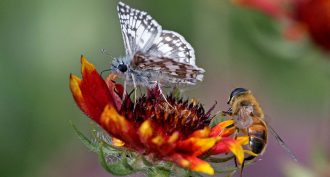 Environment
EnvironmentNon-scents: Pollution can confuse pollinators’ sniffers
New research uses computers to predict how much longer it takes bees and other pollinating insects to sniff out lunch in a polluted environment.
-
 Health & Medicine
Health & MedicineEnd of Latin America’s Zika epidemic is in sight
A computer simulation suggests the Zika epidemic in Latin America is peaking and may not strike hard again for up to three decades.
By Meghan Rosen -
 Health & Medicine
Health & MedicineNew study raises questions about cell phone safety
U.S. government study in rats links cell-phone radiation to a small increase in brain cancers and heart tumors. Some scientists now worry about lifetime risks to today’s children and teens.
-
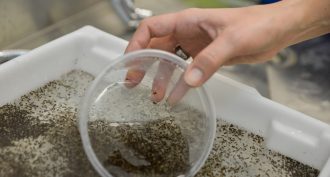 Genetics
GeneticsGM mosquitoes cut rate of viral disease in Brazil
Adults males carrying the altered gene cannot father young that survive to adulthood. That’s when they suck blood — and can transmit disease.
By Susan Milius -
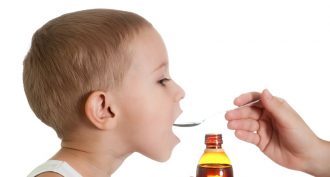 Health & Medicine
Health & MedicineDon’t use dinner-table spoons for liquid medicines!
Kids are safer when parents use precise tools to measure liquid medicines. Switching from teaspoons to metric tools could help, a new study finds.
-
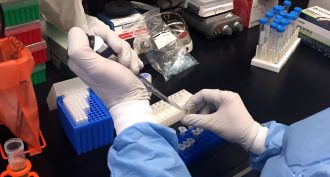 Health & Medicine
Health & MedicineU.S. mosquitoes now spreading Zika virus
Scientists had worried that if people sick with Zika came to America, local mosquitoes might bite them and spread the disease. That’s now happened.
By Meghan Rosen -
 Health & Medicine
Health & MedicineTo remember something new: Exercise!
People who exercised strenuously for a half hour after learning something new cemented those memories. But the trick: Wait four hours before getting the heart pumping vigorously.
-
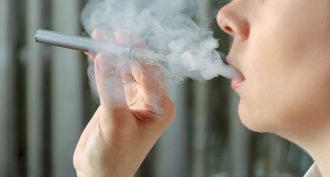 Chemistry
ChemistryE-cigs create toxic vapors from harmless e-liquids
New study finds a primary source of toxic vaping compounds. It’s the heat-driven breakdown of the liquids that hold nicotine and flavorings. And older, dirtier e-cigs make higher amounts of the toxic chemicals.
By Janet Raloff -
 Health & Medicine
Health & MedicineTo teens, benefits are more persuasive than risks
When potential rewards and punishments are equal, teens are more likely to make decisions based on those rewards than on concerns over any risks, a new study shows.
By Dinsa Sachan